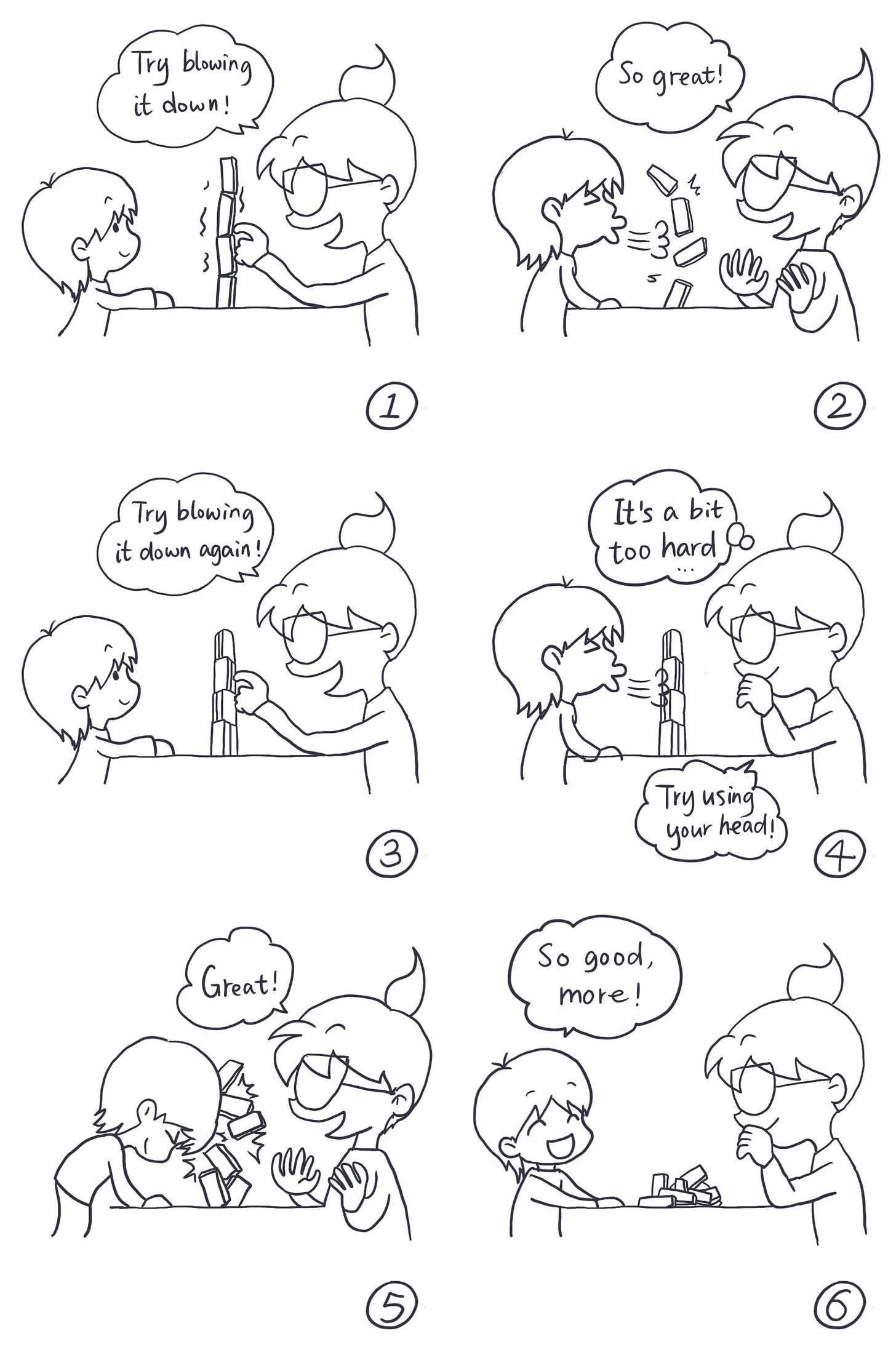Memolines ~ Knocking down blocks: a small success too
Something that might seem like a "failure" can, with a different view, become a step toward success or another kind of success itself.
Before our girl was born, my husband and I agreed on something important: confidence builds step by step. If we help her do small things successfully, she'll feel capable and slowly build confidence. I’ve written about this before.
Playing blocks: starting with knocking them down
I've seen parents ask: "What should I do when my child gets upset because their block tower falls?" This question is interesting because I can't remember our girl ever getting upset about blocks falling. I wondered why.
When she was very little, we played with blocks together. She didn't understand stacking blocks yet and couldn't follow what I was building. So I would build a small tower, then guide her hand to knock it down: "Come on, knock them down!" Then I'd cheer, "You knocked down the blocks!" I'd build again, and we'd knock them down again.
Infants can't do much. I couldn't expect her to understand blocks or how to stack them, but knocking blocks down is easy—just touch them. So I'd stack a few blocks, we'd knock them down together, and repeat. This probably made an impression on her.
From knocking down to building up
As she grew, she started stacking blocks herself. Sometimes after stacking several blocks, she would proudly show us and say "So good!" Then she would push them down on purpose and laugh, "Knocked down!" Both building and knocking down seemed fun for her. Sometimes while building, the blocks would fall, and she'd scatter them everywhere. If she felt like it, she'd rebuild; otherwise, she'd play with something else. When she played happily by herself, we didn't interfere much, only helping when asked or cheering when she wanted praise.
Changing how we play a bit
Recently, I built a tall, wobbly tower with her and said: "Now blow it down!" She blew at the blocks, and when they fell, she was thrilled. Because her lungs are small, sometimes she couldn't blow hard enough. Then I’d say: "Try using your head to knock it down!" She would bump it with her head, the blocks would crash down, and she'd clap excitedly, saying "So good!" while we cheered together.
After that, she started trying different ways to knock down blocks—using her head, arms, and other methods—then happily rebuilding. I think she now sees blocks falling as part of the game. Something that might seem like a "failure" can, with a different view, become a step toward success or another kind of success itself.
Thinking about the future
As our girl grows, life will get more complicated. She'll face challenges that need more effort and will experience many setbacks that might frustrate her. She'll need to find her own ways to build confidence. In these early years, we can support her, help build her initial confidence, and show her that challenges and setbacks are normal, so she can learn to overcome them later. People often develop resilience only through their own experiences or by facing similar situations many times.
This process happens one step at a time; it's hard to imagine what things will be like years from now. For these future challenges she will face, the journey ahead is long.


